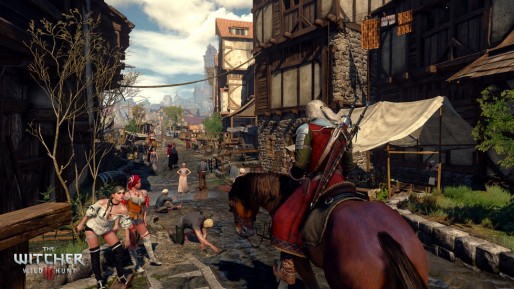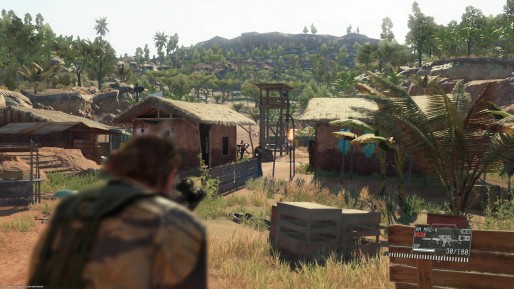This year, we have seen a complete shift in gaming structure to focus heavily on open worlds, with focused, linear experiences falling to the wayside. Here’s a list of every open world game that came out in 2015: Dying Light, The Witcher 3: Wild Hunt, Metal Gear Solid V: The Phantom Pain, Mad Max, Batman: Arkham Knight, Assassin’s Creed: Syndicate, Just Cause 3 and Fallout 4. Each of these games boasts over a hundred hours of entertainment and giant open worlds packed with stuff to do. When there are so many of these types of games released in just a year, the cracks start to show.
If you’re a normal working person with a 40-hour work week, it starts to be a burden with these giant games demanding so much of your time. While this is more of a blessing for people who want the most bang for their buck, for everyone else, these games can become a chore. It’s very difficult to find the time to complete them while also maintaining a steady, healthy life.
This is partly due to the fact that publishers see “Over 200 Hours of Game Play!” as a giant marketing tool. The developers then start to pack their games with tons of mindless side quests and missions to boost their overall content. More often than not, these side quests are hardly worth the effort and add little to the overall structure of the game. They’re 100% boring filler content with the only satisfaction coming from checking one thing off the long list of stuff to do. When people think back on their time in The Witcher 3: Wild Hunt, it’s not the hundreds of points of interests that they slogged through that they’ll remember. It’ll be those wonderfully written quests that involve characters with depth.
When so much of the development time is spent on creating these huge open worlds, it’s often the story that takes the hit. If the player is able to go where they want and do what they want at any time, creating a solid story that makes sense becomes a monumental task. Of all the games listed above, The Witcher 3: Wild Hunt is arguably the only one that has excellently molded storytelling into its open world structure. On the other side, I had no bearing on what was happening in Metal Gear Solid V or why I should care about the missions that I was undergoing. Mad Max almost insultingly felt like a game meant for checking off boxes with no real narrative other than creating a bigger, better car.
The game play can also take a hit when the game becomes thinned out across dozens of hours. Where The Witcher 3: Wild Hunt has immaculate storytelling, the mission structure feels lacking. Almost every quest devolves into “go somewhere, use Witcher Senses and fight the enemies.” This is fine for the first half of the game, but the combat never really evolves into something more substantial, especially with the relatively low number of enemy types. For Dying Light, the combat becomes absurdly easy in the second half, and much of the wonderful parkour elements are subdued by the unlocking of a grappling hook.
It all comes down to the fact that there is too much content spread across a large game structure, and the experience becomes shallow. There has to be a logical reason for the game to take place in an open world. Assassin’s Creed: Syndicate could easily be a more structured game with a finite set of levels. They could hammer down on the stealth game play and carefully craft areas for the player to do what they want. Metal Gear Solid V gained very little from moving to an open world format, and in my eyes, it actually lessened the experience. It takes so long to move around the map to complete side operations, and the world itself is incredibly barren aside from the cut-and-pasted outposts. As a result, the awesome base infiltration moments that the series was known for are few and far between.
The last concern I have with this influx of open world games is the impact it has on developers and publishers. In order to have a massive AAA open world game, the developers have to pump massive amounts of money and man-hours into creating these expansive games. In turn, this means that the game has to sell significantly more copies in order to turn a profit. As a result, publishers are far less willing to take risks and more willing to play it safe, as we’ve seen with the Assassin’s Creed franchise over the years.
I’m not saying that open world games have to go away or should go away. I think that this year should serve as a learning tool — what to do right and what to avoid when creating an open world game. Developers making games in the genre should take a look at Metal Gear Solid V in how to create emergent game play. On the other side, they should take note of how well The Witcher 3: Wild Hunt creates an immersive world filled with interesting little stories to uncover. We’ve seen how genres can become oversaturated and then bust, as what happened with 3D platform games. If these open world games with lukewarm side activities, shallow game mechanics and weak storytelling continue to get pumped out, the open world genre may see the same fate.


